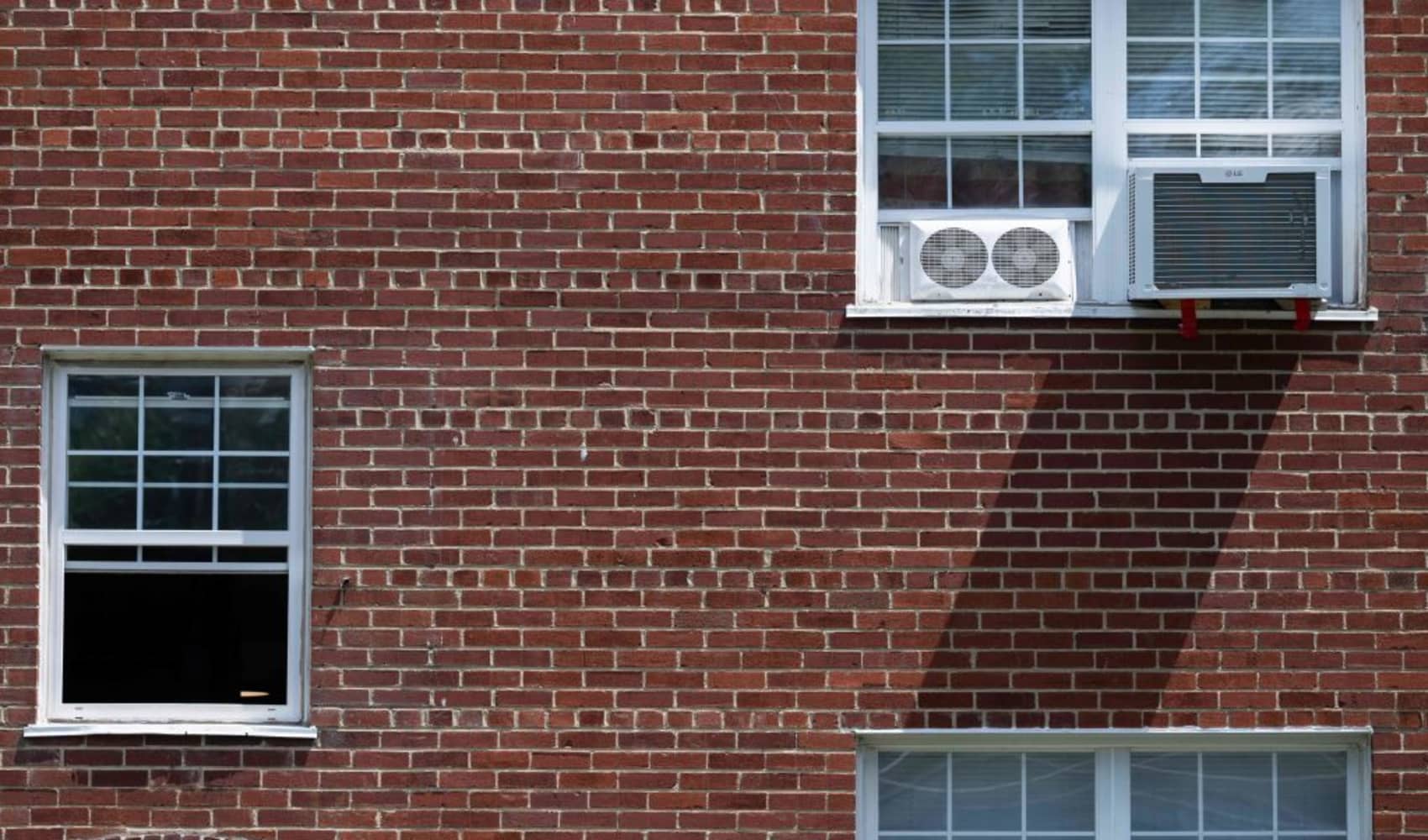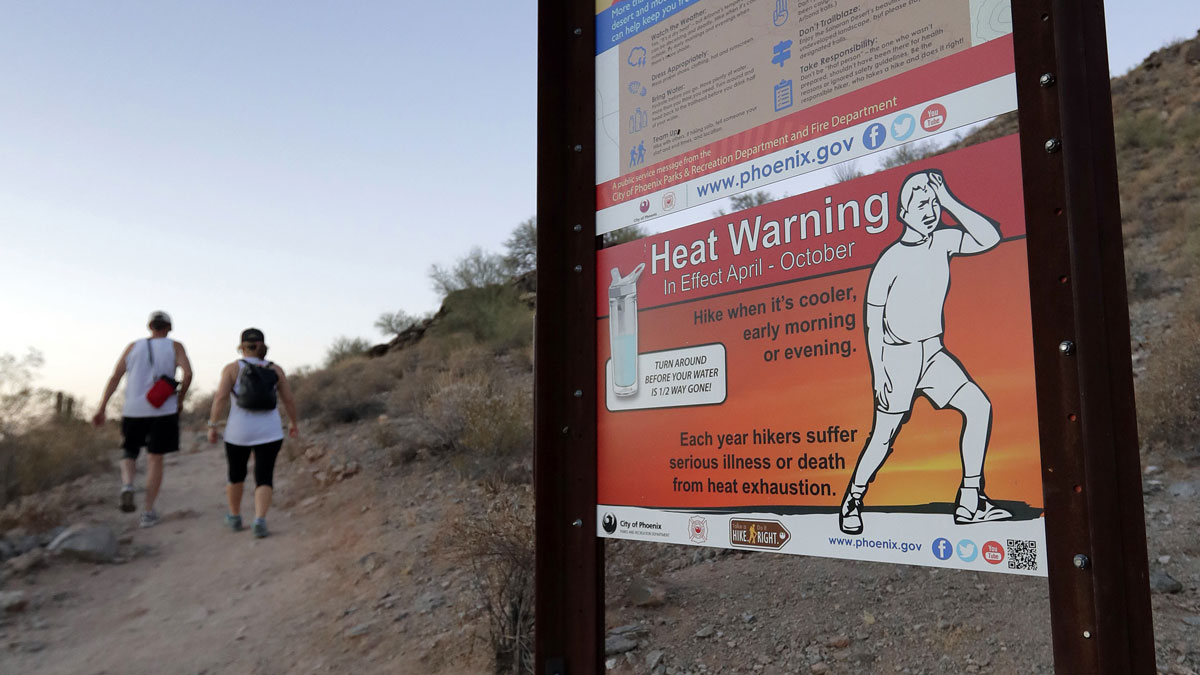
Roughly 130 million people were under threat Saturday and into next week from a long-running heat wave that already has broken records with dangerously high temperatures — and is expected to shatter more from East Coast to West Coast, forecasters said.
Oppressive heat and humidity could team up to spike temperatures above 100 degrees Fahrenheit (about 38 degrees Celsius) in parts of the Pacific Northwest, the Mid-Atlantic and the Northeast, said Jacob Asherman, a meteorologist with the National Weather Service.
Watch NBC6 free wherever you are
In Oregon, records could be broken in cities including Eugene, Portland and Salem, Asherman said. Dozens of other records throughout the U.S. could fall, Asherman said, causing millions to seek relief from the blanket of heat in cooling centers from Bullhead City, Arizona, to Norfolk, Virginia.
“Certainly a pretty anomalous event that we’re expecting here, which looks like it will continue through at least midweek,” Asherman said.
Get local news you need to know to start your day with NBC 6's News Headlines newsletter.
By 9 a.m. Saturday, the National Weather Service said the temperature had already risen to 98 degrees (36.6 C) in Phoenix, which saw a record high of 118 F (47.7 C) for the date on Friday.
Meteorologists predict temperatures will be near daily records region-wide through most, if not all, of the coming week with lower desert highs reaching 115 to 120 degrees (46.1 to 48.8 C) .
Rare heat advisories had been extended even into the upper elevations, including around Lake Tahoe, with the National Weather Service in Reno warning of “major heat risk impacts, even in the mountains.”
“How hot are we talking? Well, high temperatures across (western Nevada and northeastern California) won't get below 100 degrees (37.8 C) until next weekend,” the service posted online. “And unfortunately, there won't be much relief overnight either."
A new heat record for the day was set on Friday in California's Death Valley -- one of the hottest places on Earth — with the mercury climbing to 127 F (52.8 C.) The old mark of 122 F (50 C) was last tied in 2013.
More extreme highs are in the near forecast, including 129 F (53.8 degrees C) for Sunday at Furnace Creek in Death Valley National Park, and then around 130 (54.4 C) through Wednesday. The hottest temperature ever officially recorded on Earth was 134 degrees (56.67 C) in Death Valley in July 1913, though some experts dispute that measurement and say the real record was 130 F (54.4 C) recorded there in July 2021.
The worst was yet to come across much of the West, with triple-digit temperatures likely — between 15 and 30 degrees (8 and 16 degrees Celsius) higher than average into next week, the National Weather Service said.
The Eastern U.S. also was bracing for more hot temperatures. Baltimore and others parts of Maryland were under an excessive heat warning, as heat index values could climb to 110 F (43 C), forecasters said.
"Drink plenty of fluids, stay in an air-conditioned room, stay out of the sun, and check up on relatives and neighbors," said a National Weather Service advisory for the Baltimore area. “Young children and pets should never be left unattended in vehicles under any circumstances.”
In Arizona’s Maricopa County, which encompasses Phoenix, there have been at least 13 confirmed heat-related deaths this year, along with more than 160 other suspected heat deaths are still under investigation, according to the county’s most recent report.
That does not include the death of a 10-year-old boy earlier this week in Phoenix who suffered a “heat-related medical event” while hiking with family at South Mountain Park and Preserve, according to police.
At the Waterfront Blues Festival in Portland, Oregon, music fans dealt with heat by drinking cold water, seeking refuge in the shade or freshening up under water misters. Organizers of the weekend revelries also advertised free access to air conditioning in a nearby hotel.
Angela Quiroz, 31, kept her scarf and hat wet and applied sunscreen at she protected herself from the heat at the music festival.
“Definitely a difference between the shade and the sun,” Quiroz said Friday. “But when you’re in the sun, it feels like you’re cooking.”
___
Associated Press reporter Julie Walker contributed from New York. Boone reported from Boise, Idaho, and Sonner reported from Reno, Nevada. Associated Press journalists Adrian Sainz in Memphis, Tennessee; Jonathan Drew in Raleigh, North Carolina; John Antczak in Los Angeles; Rio Yamat in Las Vegas; Denise Lavoie in Richmond, Virginia; and Ben Finley in Norfolk, Virginia, contributed.




